battery and charger
-
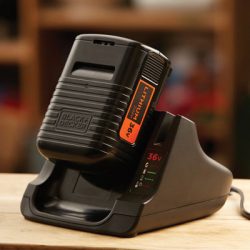
BLACK+DECKER Battery and charger (1)
-
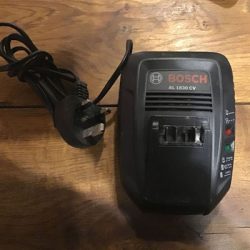
Bosch battery and chargers (1)
-
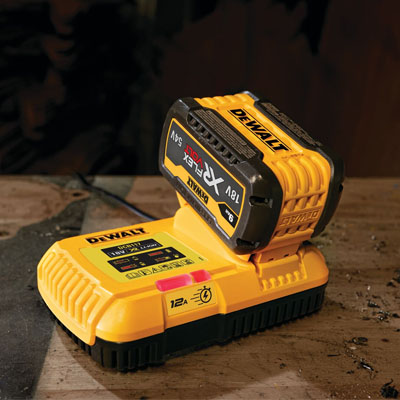
Dewalt battery and charger (1)
-
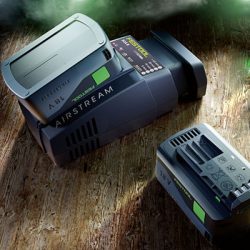
Festool battery and chargers (1)
-
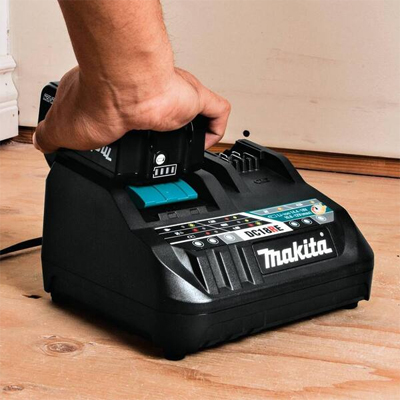
Makita battery and chargers (1)
-
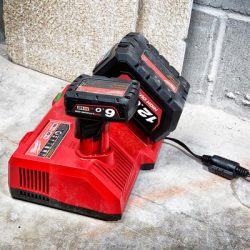
Milwaukee battery and chargers (1)
-
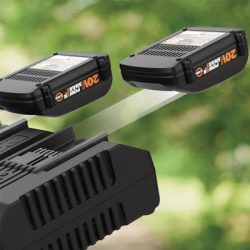
Worx Battery and charger (1)
Shop Batteries and Chargers
Batteries and chargers are essential components of our modern lives, serving as the lifeblood of countless electronic devices and vehicles that keep us connected, informed, and mobile. Shop Batteries And Chargers. Batteries are ingenious energy storage units that harness and store electrical energy for later use, providing a portable and reliable source of power. Whether it’s the lithium-ion batteries in our smartphones, laptops, and electric cars or the traditional alkaline batteries in our remote controls and flashlights, these energy reservoirs have become indispensable in our daily routines.
Chargers, on the other hand, are the gatekeepers of replenishing and rejuvenating these batteries, ensuring that our devices remain functional and ready for action. They come in various forms, from simple wall adapters to sophisticated wireless charging pads, tailored to accommodate the diverse needs of our diverse electronic companions.
Chargers efficiently and safely convert electrical energy from your power source, whether it’s a wall outlet or a solar panel, into the specific voltage and current needed to recharge your batteries, preventing overcharging and protecting the lifespan of your devices.
When it comes to purchasing batteries and chargers, it’s essential to make informed decisions to ensure your devices stay powered and ready for action. Batteries, the silent workhorses of our electronic world, come in various types, each tailored to specific applications. Whether you need high-capacity lithium-ion batteries for your energy-hungry gadgets or long-lasting alkaline batteries for your everyday household items, understanding your device’s requirements is key.
Types of Batteries and Chargers
Battery Types:
Price comparison for Li-Ion batteries
Lithium-ion batteries are the most prevalent choice for power tools. They offer high energy density, which means they can store a substantial amount of power in a compact form. Li-Ion batteries provide longer runtime and faster charging compared to other battery types. They also have a lower self-discharge rate, ensuring that the battery retains its charge when not in use. Additionally, Li-Ion batteries are lightweight, making them suitable for cordless tools where weight matters.
Rechargeable NiCd batteries for sale
NiCd batteries were once a common choice for power tools but have become less popular due to environmental concerns. They are known for their ability to handle high discharge rates and work well in extreme temperatures. However, they suffer from the “memory effect,” which can reduce their capacity over time if not properly maintained.
NiMH batteries with fast charging
NiMH batteries offer a middle ground between NiCd and Li-Ion batteries. They have a higher energy density than NiCd batteries and are more environmentally friendly. While NiMH batteries don’t have the memory effect, they do have a slightly lower energy density compared to Li-Ion.
Best deals on Lead-Acid batteries
Lead-acid batteries are mainly used in larger power tools and are known for their robustness and ability to provide high-current bursts. These batteries are heavy and require maintenance but are suitable for applications where power is a priority.
Charger Types:
USB standard chargers for sale
Standard chargers are basic chargers that are often included with power tool kits. They provide a straightforward charging process and are typically more affordable. However, they may not have advanced features like fast charging or battery conditioning.
High-speed fast chargers for sale
Fast chargers are designed to reduce downtime by rapidly charging power tool batteries. They can charge batteries significantly faster than standard chargers. However, fast charging can generate more heat, which may affect battery longevity if used excessively.
Smart chargers with adaptive technology
Smart chargers are equipped with advanced features like microprocessor control, which optimizes the charging process. They can monitor the battery’s state and adjust the charging rate accordingly, preventing overcharging and optimizing battery health. Some smart chargers also include diagnostic capabilities to assess the condition of the battery.
Discounts on multi-chargers
Multi-chargers are designed to charge multiple batteries simultaneously, which is beneficial for professionals or users with several power tools. They can be standard, fast, or smart chargers, depending on the model.
Price comparison for wireless chargers
Wireless charging is a growing trend in power tools. It eliminates the need for physical connections, making it more convenient. Qi wireless charging, in particular, is gaining popularity for its compatibility with various devices.
Battery Features:
- Capacity: Batteries come in various capacities, typically measured in milliampere-hours (mAh) or watt-hours (Wh). Higher capacity batteries offer longer runtime between charges, making them suitable for devices that require extended usage.
- Voltage: Batteries provide a specific voltage level, typically 1.2V for NiMH, 3.7V for lithium-ion, and 1.5V for alkaline. Choosing the right voltage is crucial to ensure compatibility with your device.
- Chemistry: Different battery chemistries, such as lithium-ion, alkaline, or nickel-metal hydride, offer varying energy densities and discharge characteristics. Understanding the chemistry helps you select the right battery for your application.
- Rechargeability: Rechargeable batteries are eco-friendly and cost-effective in the long run, as they can be reuse many times. Non-rechargeable batteries, while disposable, offer longer shelf life.
Benefits of Batteries
- Portability: Batteries provide a portable and self-containe power source, allowing you to use electronic devices without being tethered to a power outlet.
- Cost-Effective: Rechargeable batteries can save money over time compare to disposable ones, as they can be reused hundreds of times.
- Environmental Impact: Rechargeable batteries reduce waste and minimize environmental impact, as they require fewer disposals.
Safety Measures:
- Overcharge Protection: Many modern rechargeable batteries feature built-in overcharge protection circuits to prevent overcharging, which can damage the battery and pose safety risks.
- Short-Circuit Protection: Batteries often include safeguards against short circuits, which can lead to overheating and potentially hazardous situations.
- Temperature Control: Some batteries incorporate temperature sensors to prevent extreme temperature fluctuations, reducing the risk of thermal runaway.
Charger Features:
- Compatibility: Chargers should be compatible with the specific battery chemistry (e.g., NiMH, lithium-ion) and size (e.g., AA, AAA) you intend to charge.
- Charge Speed: Some chargers offer fast-charging capabilities, which can significantly reduce the time it takes to charge batteries. However, fast charging should be balance with battery health considerations.
- Smart Charging: Smart chargers have advanced features such as individual cell monitoring, voltage optimization, and capacity testing to ensure efficient and safe charging.
Benefits of Charger
- Convenience: Chargers provide a convenient way to replenish battery power, reducing the need for constant battery replacements.
- Versatility: Universal chargers can accommodate multiple battery sizes and chemistries, making them versatile for various devices.
- Battery Maintenance: Some chargers offer maintenance modes, which can help extend the lifespan of rechargeable batteries by conditioning and rejuvenating them.
Safety Measures:
- Overcharge Protection: Chargers often feature mechanisms to prevent overcharging, which can damage batteries or cause safety hazards.
- Short-Circuit Protection: Built-in safeguards prevent short circuits, ensuring the safety of both the charger and the batteries.
- Temperature Monitoring: Advanced chargers may include temperature sensors to prevent overheating during the charging process, reducing the risk of accidents.

























